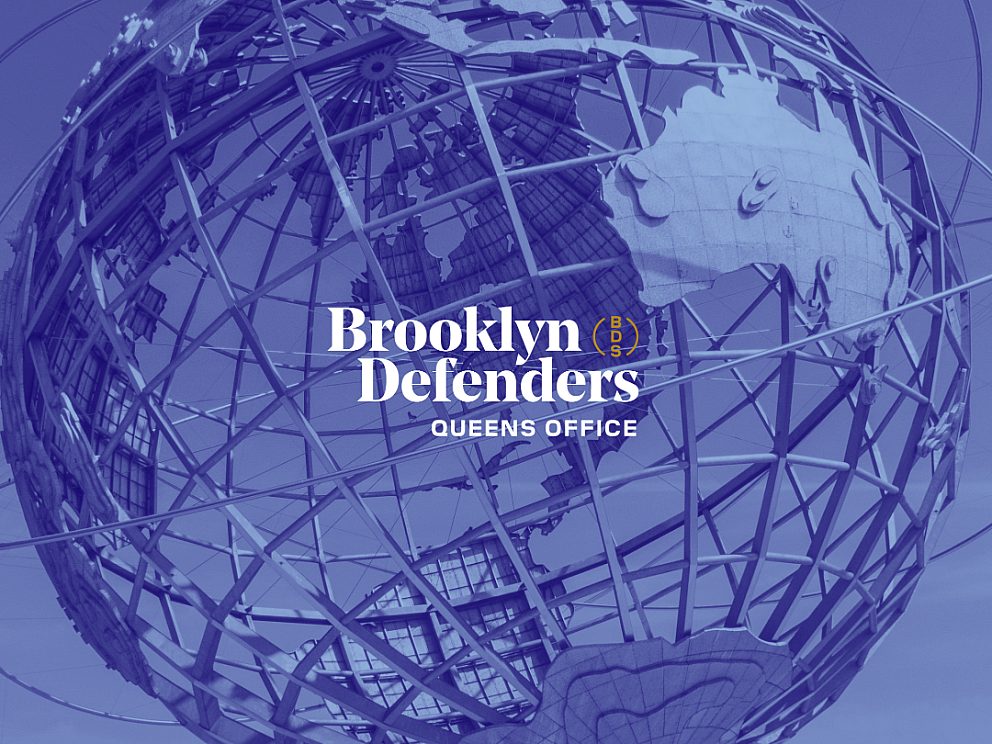Memo of Support - START Act: Expanding Criminal Record Relief for Survivors of Tracking
MEMORANDUM OF SUPPORT
START Act: Expanding Criminal Record Relief for Survivors of Trafficking
January 28, 2021
Brooklyn Defender Services (BDS) urges the New York State Legislature to pass S.674 (Ramos)/A.459 (Gottfried), the Survivors of Trafficking Attaining Relief Together (START) Act. We strongly support this bill, which would provide greater protection for survivors of sex and labor trafficking. A broad-based criminal record relief bill will remedy current statutory limitations by allowing victims to vacate all convictions where the offense was a result of being trafficked.
BDS provides multi-disciplinary and client-centered criminal defense, family defense, immigration and other civil legal services, social work support, and tools for self-advocacy to more than 30,000 indigent Brooklyn residents every year. Over the past 23 years we have represented close to half a million people in criminal matters in Kings County, New York. Since the inception of Human Trafficking Intervention Courts, BDS has developed a model of specialization to best represent victims of human trafficking. BDS’s specialized trafficking team provides extensive wrap-around services that meet the needs of trafficking survivors in a comprehensive way.
EXISTING LAW
In 2010, New York State became the first state to enact legislation enabling victims of sex trafficking to vacate certain convictions if “the defendant’s participation in the offense was a result of having been a victim of sex trafficking as defined under section 230.34 of the penal law… or as defined under the Trafficking Victims Protection Act.”1 The bill sought to remedy the continued discrimination and challenges survivors of trafficking faced often in large part due to criminal records they accrued during their victimization. The bill allowed them to request a vacatur of convictions for prostitution, prostitution in a school zone and loitering for the purposes of prostitution. Though the bill was limited in scope, it recognized the victimization and discrimination trafficking survivors face with a criminal record after their escape from trafficking. However the bill did not address the myriad of other offenses that traffickers force victims to commit.
SOLUTION
The START Act is a criminal record relief bill which will enable victims of trafficking to clear from their records criminal convictions resulting from their exploitation. As defenders, we know that both trafficking victims are compelled to commit a wide ranging spectrum of crimes, and all survivors would benefit from an expanded criminal record relief statute. The START Act will remedy the shortcomings of the current law to account for the myriad other offenses that result from human trafficking.
Often, trafficking victims become involved with the criminal legal system as a result of crimes committed under duress from their trafficker. Law enforcement agencies have largely focused on the criminalization of people engaged in sex work, coerced or willingly, with the ostensive goal of gaining intel for the apprehension and prosecution of the trafficker. However, these approaches reinforce a punishment paradigm that criminalizes trafficking victims.
Current record relief laws recognize only prostitution offenses as a result of being trafficked, and neglect the various other illegal activities trafficking victims are forced to do. Though prostitution-related offenses make up the bulk of arrests, many trafficking victims are also arrested for activities such as: drug possession, trespassing, unauthorized street vending, and possession of a weapon.2 As a result, trafficking victims often have criminal records, which limit access to employment, education, housing, financial resources, and inevitably prevents them from lifting out of poverty and attaining a new life. A criminal record can also result in severe immigration consequences, including deportation and the inability to adjust immigration status or become a citizen. New York’s narrowly focused vacatur law3 does not reflect the reality of trafficking, but enables further criminalizes and stigmatizes victims of human trafficking. 4
CLIENT STORY
Ms. D was a teenager when she was first introduced to her traffickers. A young boyfriend sold her to them in order to repay a debt he owed. Thereafter, Ms. D and her family’s lives were threatened if she did not comply with their demands. Ms. D was forced to use drugs, engage in daily sex work in order to make money for them and was brutalized whenever she refused or did not perform to their standard. This occurred all before Ms. D turned 17 years old.
Held emotionally and physically captive by these traffickers, Ms. D realized the only way she could survive was to comply. After working for her traffickers for several years, their demands of her changed. Instead of just demanding sex work for money, they demanded that she recruit other women to work for them. Ms. D was solely responsible for recruiting other women and girls; her traffickers kept a safe distance from the recruitment of other women to protect themselves from being detected by law enforcement. Their demands continued to be accompanied by violent threats against her and her family.
Unfortunately, Ms. D was arrested for a felony charge of promoting prostitution and ultimately convicted.
Ms. D has since participated in a program aimed at assisting victims of trafficking. She hopes to finish her degree and holds a minimum wage job. The criminal record she received as a direct result of being trafficked has hindered her ability to move on in many ways. In addition to preventing her from getting a better paying job, she continues to suffer from the compounding post-traumatic stress as a result of her years of victimization and her experience in the criminal legal system.
CONCLUSION
Criminal records continue to haunt survivors long after they have escaped the victimization and exploitation of human trafficking. It is imperative that the legislature recognize the ways survivors are hindered from complete healing and reintegration with a narrow record relief law. The New York State Legislature must pass the Start Act (S.674 /A.459) to alleviate the life-long impact that criminal convictions have on trafficking survivors.
If you have any questions, please contact Kathleen McKenna, Policy Social Worker, at kmckenna@bds.org or 718-254-0700 ext.210.

